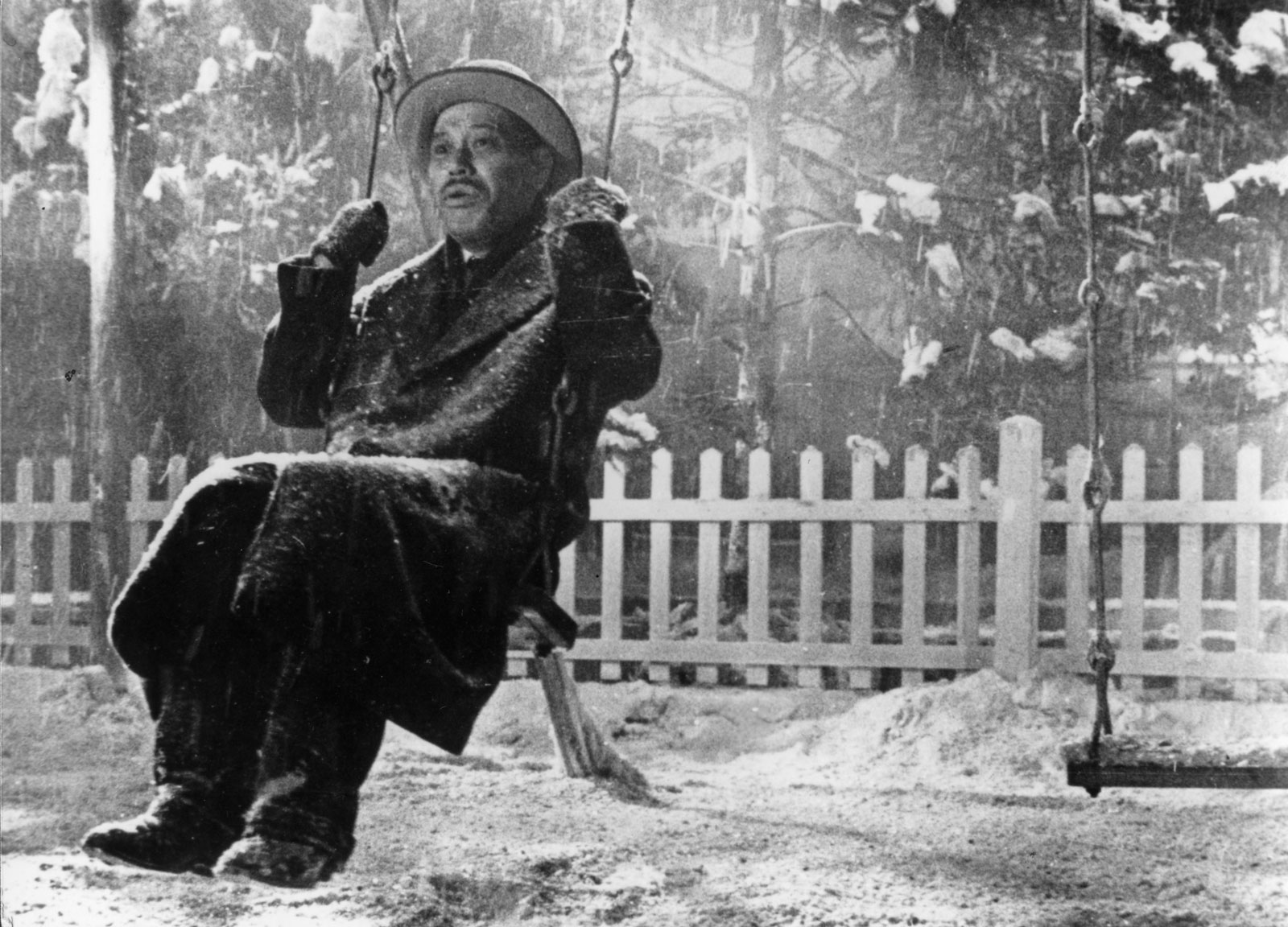At the NY Review Daily, legendary travel writer Pico Iyer, who has lived in Japan for decades, writes about the first time he saw Akira Kurosawa’s film Ikiru. Iyer also suggests that in their contrasting but complimentary way, Kurosawa and fellow Japanese auteur Yasujiro Ozu captured the breadth and complexity of postwar Japan on film. An excerpt:
Of course, at a remove of sixty-three years, one can also see how Kurosawa was catching something essential to the Japanese postwar predicament, as his culture began to waver between its Buddhist roots and a new, imported American optimism. Japan, then as now, was looking in two directions at once, as brassy Western fashions began to encircle its modest wooden houses. Two women of the night here burst into a ditty they’ve no doubt learned from visiting GIs—“I’m gonna give you a Christmas tree”—delivered in a kind of saucy English, while the more innocent girls who later belt out (in English once again) “Happy Birthday to You!” might be smuggling a foreign confidence and blitheness into a society more attuned to the bittersweet song at the center of Ikiru, “Life is Brief.” Impermanence, the fleetingness of things—mono no aware, as it’s called—still sit at the heart of Japan, even in the midst of its bright, fluorescent, 7-Eleven diversions. And at the core of the film lies a cynical upending of a truth that you might find in any Zen temple: “The best way to protect your position is by doing nothing at all.” Yet still, I watch Ikiru today and recognize the streets, the settings, and the surfaces of my acquired home more than I recognize its relatively intimate and recessive heart.
It’s a familiar trope, I’m sure, but to set Kurosawa next to Ozu is to be startled by their differences. Ozu’s films are often about characters who stoically accept their duty, even as everything in them cries out against it; Kurosawa’s, as here, are about raging, often quixotically, against the system and its accepted pieties. Ozu, you could say, catches the stifled sobs and brave smiles of Cordelia, where Kurosawa, whose Ran famously plays off King Lear, fastens on the rebellions of Goneril and Regan. Ozu’s concern is with the family, and how an intricate structure of social obligation is under stress as trains propel a new, foreign world into their midst; Kurosawa is much wider and wilder in his interests, unashamedly deploying an Olympian voice-over in Ikiru to declare, “This man has been dead for twenty years,” while scheming relatives announce, “I just hate Japanese houses. We need a modern home.” Ozu famously kept his camera still, at tatami level, in long takes designed to see what lay beneath the silences within a near-empty room; Kurosawa swivels it around to the raucous streets and offices of the unsubtle world.
Image: Takashi Shimura as Kanji Watanabe in Akira Kurosawa’s Ikiru, 1952.
